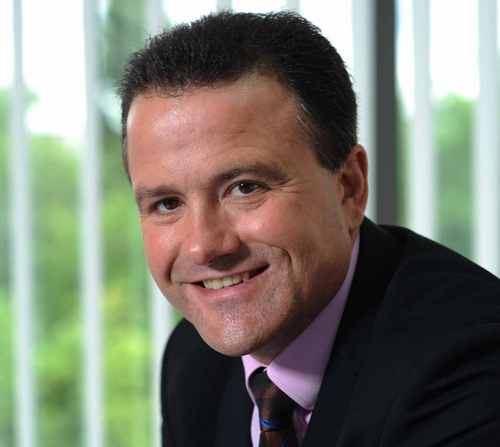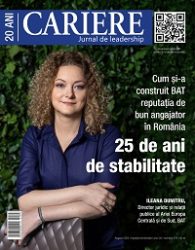Stop the „Brain Drain” in Romania

For me Romania was at first a land of wondrous nature, authentic traditions, and romantic language – all waiting to be discovered. Unfortunately, with the global financial downturn of 2009, the good times were short-lived.
Leading the IFRO centre in Bucharest, one of the many research centers around the globe of a top player in the field of chip card automotive electronics, I acknowledged Romanian experts for good educational background, professionalism, and linguistic competences. In fact, all our engineers speak at least one foreign language and some of them speak a second and even a third language. Moreover, the cultural gaps in Romania with respect to other west European countries (e.g. our headquarters is in Munich Germany) are very small, when compared to other regions of the world.
So when Infineon Technologies first decided to establish a design center in Romania, it was mainly based on the abundance of highly educated engineers. In 2005, when the design center was started, we succeeded in hiring more than 200 engineers in a short timeframe. In fact, the rapid setup of the IFRO centre was exclusively based on human resources potential of the local market. Now, due to the persisting economic crisis in Romania the situation is, however, changing.
Several months ago Europe has already started its economic recovery and in the technology sector, major high-tech companies are hiring again while Romania is still living the recession. This creates problems such as a higher emigration rate, in particular, of young talents and key skills thus leading to a „brain drain” phenomenon. Such a phenomenon works against interests of foreign investments and this country as a whole.
It is well known that the economic factors and living conditions represent a strong driving force for emigration. In such areas, young talents and key skills are tempted to leave their country believing that better conditions exist abroad. Therefore, they eagerly seize chances offered by other countries for graduate and post-graduate studies or jobs in state-of-the art high-tech domains, which open up desired career opportunities and lead to settlement in the country of destination.
The challenge lies not only in the drain of young talent but also, in the retention of existing key skills under the persevering economical conditions. In general, every company strives to retain key skills, thus securing its investments, in terms of: intellectual capacity, corporate knowledge, and cost. This becomes a difficult task in countries with economic crisis conditions.
Nowadays in Romania, even for highly specialized technical experts, with the salary gap narrowing in comparison to other western European countries – and even considering the cost of living in West Europe which is considerably higher than in Romania – these people still opt to leave their homeland due to the present overall economical environment.
We understand the specialized labor market challenges, so our attraction and retention strategies are tailored to the local market. To this, we are:
– offering competitive salaries and investing in yearly benchmarks (to make sure our people are paid in accordance to the market, based on our industry sector). It is worth mentioning that the semiconductor industry is the highest paying with respect to other industry sectors in Romania.
– implementing reward and recognition and maintaining a working environment corresponding with our other centers across Europe, Asia-Pacific and the US.
– proactive in terms of increasing the knowledge and skills of our employees. Skill development and assessment are performed in and outside Romania, thus carrying our career development plans to the international level.
In addition, every engineer is sent on on-job trainings and short or long term assignments to our Munich headquarters or other sites or even, if required, in customer locations. This way, the individual returns with broadened horizons whilst benefiting his company with his newly acquired knowledge and skills. A rather positive side outcome of such assignments is that people get the chance to experience life in a different country, learn about other countries difficulties and thus are able to perceive better the pros and cons of a life abroad.
– assigning mentors for our newly hired engineers and working students. They are a core of seniors providing the newly hired with technical as well as corporate support and help them with special needs to carry out their tasks.
– extending further, to reach the young talents in order to help them achieve their aspirations without having to leave their home country. To this, Infineon collaborates together with the Romanian universities where we have installed equipped labs in Bucharest and Iasi technical Universities to which students have access. In addition, we offer lecture support to enrich curricula with topics fitting our technical domain. We invite top experts to Romania to deliver special lectures and seminars and furthermore, and our senior engineers give lectures in both universities throughout the academic year. Last but not least, we decided to sponsor master and doctoral programs pertaining to our fields of specialization.
Finally, I think the solution to stop the „brain drain” disease infecting Romania remains at higher level and is beyond the capability of a single company. It requires the government to increase the funding to universities and research institutes and install the right programs to allow attaining regional competitiveness in technology. Also, a more flexible fiscal law would further encourage foreign investors to establish businesses in Romania and thus, give an opportunity to talented people to show their potential and implement their skills in their own country, while participating in building a better future for the next generation.
Dr. Neuhäuser Michael
Vice President and General Manager Infineon Romania

